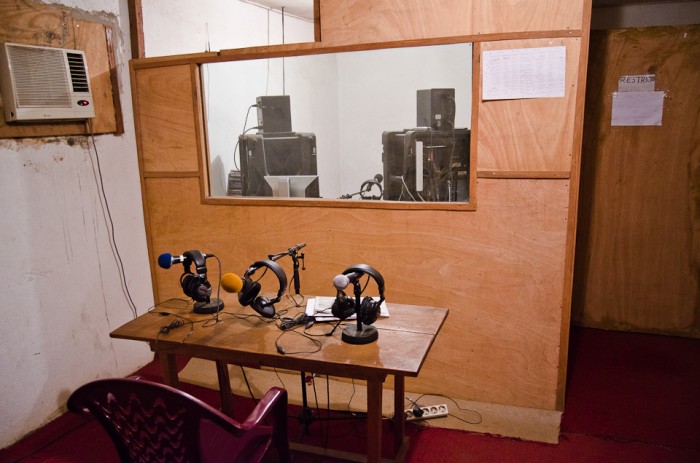During our sojourn to the seaside town of Cestos, capital of Rivercess County, we launched the Soundbooth, an audio documentary project modeled on NPR”s StoryCorps. The idea is to have two people very familiar with each other – a mother and a daughter, a teacher and a student, a pair of friends – interview each other on a story or topic relevant to their lives. StoryCorps has been doing this for a while, and has a great archive of American stories, told in conversational, intimate style. We”re trying to do the same thing in Liberia.
For our first effort, we partnered with the Rivercess Broadcasting Service. This community radio station is based in Cestos and managed by Rebecca, a small but tough woman who runs a 15-person, largely volunteer staff with minimal equipment and funding. They report on local news, rebroadcast UNMIL (UN Mission in Liberia) national news reports, and host a variety of call-in and specialty shows – check out Luisa”s post yesterday for more on the radio station. Rebecca helped us figure out when and where set up the Soundbooth (at a regularly held evening public forum on the main strip in Cestos) and announced it over the air.
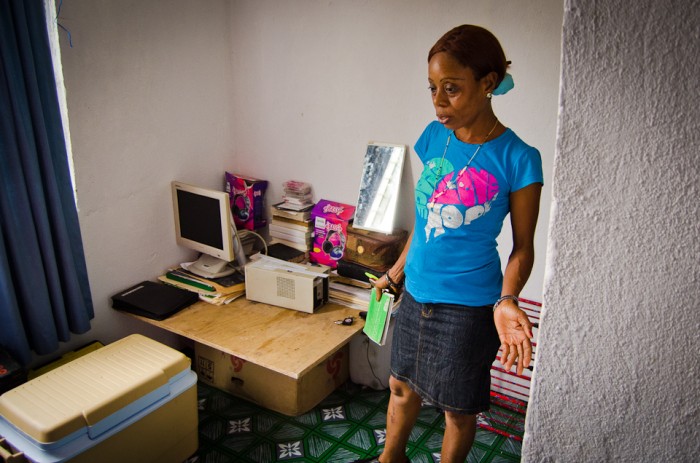
Rebecca shows us her station manager’s office at the Rivercess Broadcasting Service. Photo by Cameron Zohoori
People filtered in slowly, but as we began to set up the booth – a set of two small, insulated, collapsible boxes with a mini shotgun microphone pointing out of either side – the crowd grew quickly. The people of Cestos were hesitant upon first hearing a description of what we were looking for, but after a perfect demonstration by Together Liberia trainees Kindness and Beyin (and a rousing explanation by Beyin – “You always complain that you can”t talk on the radio, well now the radio is coming to you!”), they warmed up to it. We decided to keep the topic focused – to tie in with the reporting being done by our trainees at the local high school, we wanted to hear stories of education in Liberia, past and present, good and bad. Though the demographic of those willing to talk stayed more or less the same throughout the evening – 20 and 30something males with at least some high school education – there were many interesting stories coming out in the few minutes each pair had in front of the Soundbooth microphones.
Here are a some highlights:
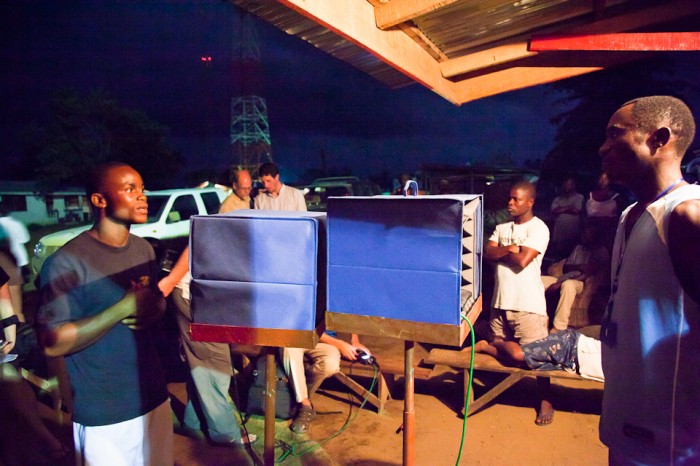
Hilton W. Kollar and Farleh Pailey recall their school days best online casino for our Soundbooth. Photo by David Trotman-Wilkins
Hilton W. Kollar describes the one thing he prayed for from God – and received after graduating high school:
The only thing I prayed for – Together Liberia Soundbooth by Together Liberia
Farleh Paley explains how the war set back the educational system, and many young people like himself:
Where we came from – Together Liberia Soundbooth by Together Liberia
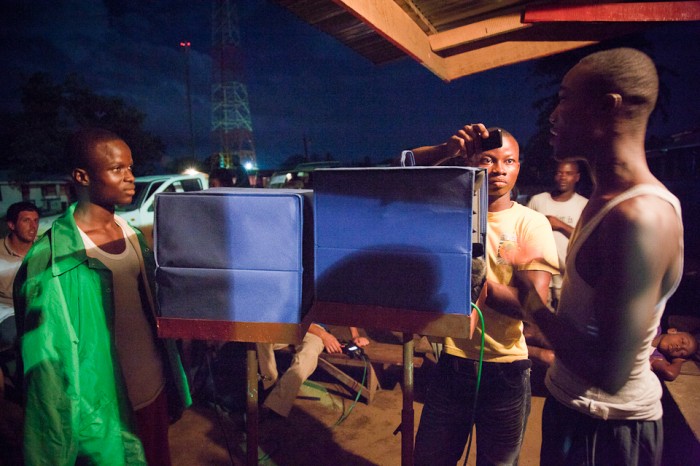
Stanley Charpaye and Timothy Kpeaywe tell some stories at the Soundbooth. Photo by David Trotman-Wilkins
Stanley S. Charpaye recounts a humorous case of being disciplined for forgetting to wear his belt:
Can you imagine? – Together Liberia Soundbooth by Together Liberia
Charpaye describes how his family had to walk barefoot for miles to flee the civil war:
Walking with our bare feet – Together Liberia Soundbooth by Together Liberia
Timothy Kpeaywe talks about the shame of not having enough money to attend his own graduation:
You just have to go through it – Together Liberia Soundbooth by Together Liberia
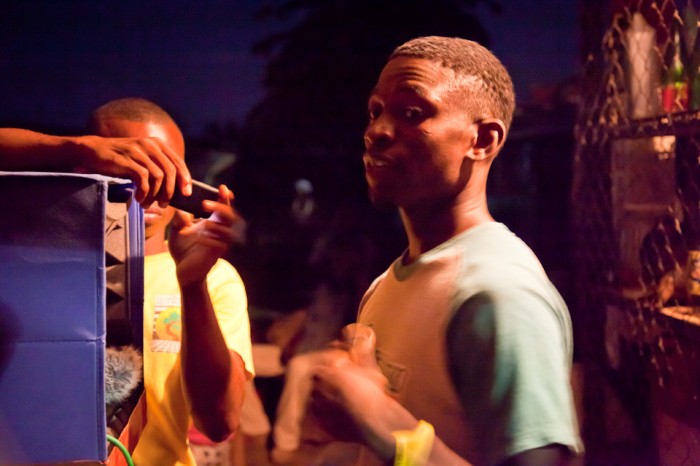
William R. Grant shares a story for the Soundbooth, while being broadcast live on the radio via cellphone relay. Photo by David Trotman-Wilkins
William R. Grant discusses the pain he felt staying in Nigeria during the Liberian civil war:
My people are there – Together Liberia Soundbooth by Together Liberia
The Soundbooth project is just getting started, so stay tuned for more stories!

